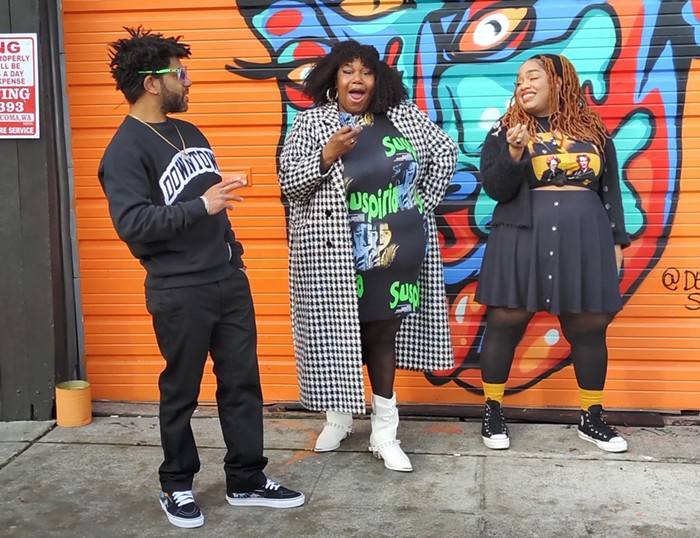When Washington State made a leap into the future in 2012—no longer arresting people for cannabis possession, no longer treating the black-market economy as if it didn't exist—there were a lot of unanswered questions. Would the federal government block state law? How would the state license pot growers and retailers? Would high-school students start smoking more weed than they already do? Would customers be willing to pay the hefty taxes?
No one knew the answers to these questions because no locality in the world had ever done what Washington was attempting to do. Places like the Netherlands and Portugal had effectively legalized weed but, much like our own state's decades-old medical cannabis program, those places made no attempt to actually regulate the product. Colorado was making similar moves at the same time we were, but their ballot measure passed the same day ours did.
Five years later, we have pretty good answers to the above questions. The Feds have largely stayed on the sidelines. The state has (for the most part) been successful in licensing growers and retailers. The kids still smoke weed but not any more than they previously did. And customers seem happy to pay the excise tax in exchange for the convenience of not having to hang out with their old dealers. The state brings in $20 million in taxes per month.
Now bureaucrats from around the world are flocking to Olympia to learn how to do what we did. Officials from 17 states, two US territories, and 11 countries have visited the Washington State Liquor and Cannabis Board (WSLCB) to try to learn how to regulate weed, according to a list compiled by the state.
Rick Garza, director of the WSLCB, said interest in how Washington regulates cannabis has been increasing since the first retail recreational shops opened in 2014. "We've been doing this for three years now, and it's been pretty intense for the last two years," he said. Garza had just been in Los Angeles, where he shared the details of Washington's weed regulations at a city council meeting.
Many of the states that have recently legalized recreational or medical cannabis visited us first, including Illinois, Hawaii, California, and Massachusetts. Other states that have yet to legalize weed, like Kentucky and Indiana, have also visited. The international list includes Brazil, Belgium, France, Germany, Great Britain, Jamaica, Mexico, and even Uruguay, which has had legal weed since 2014.
Garza said most delegations visit Colorado as well as Washington.
"Typically, they're either coming from Colorado or they're going to Colorado from Washington. They really spend a lot of time with our two states," Garza said. "Colorado and Washington were the first to do it, and no one had ever done it before, so we've all struggled with the complexity of that."
Delegations from Alaska and Oregon visited frequently after voters in those two states legalized weed. They were especially interested in studying how we allocated licenses and how we opened up banking services for cannabis businesses.
"I wish I was in Oregon's or Alaska's position—they really visited us a lot," Garza said. "I wish a playbook had been handed to me that said, 'This how you do this thing.'"
Steven Marks, executive director of the Oregon Liquor Control Commission, which regulates cannabis in Oregon, agreed that Oregon had an easier start than we did. "For us, as the third state in, we had a little bit of an advantage," Marks admitted.
Cynthia Franklin, the former director of Alaska's Alcohol and Marijuana Control Office, said it was particularly useful to see how the WSLCB handled tense meetings with members of the cannabis industry.
"We got to attend a board meeting, which was very helpful because we got to see what kind of things the industry had to say to the board at the board meeting. We got to watch a little fireworks in the board meeting," Franklin said. "All of our board meetings from day one have been fiery, so it was good to see that in Washington and know a little bit about what to expect."
Garza and the WSLCB are planning a conference this spring for all of the states with legal weed to meet together in Olympia—the first conference of its kind, he says. Marks said this kind of cooperation between states is especially important because we're not getting any help from the federal government.
"Given the status federally and the lack of resources around the country, and with so few agencies with any experience regulating marijuana, it is more important that the states work together," Marks said. ![]()

















